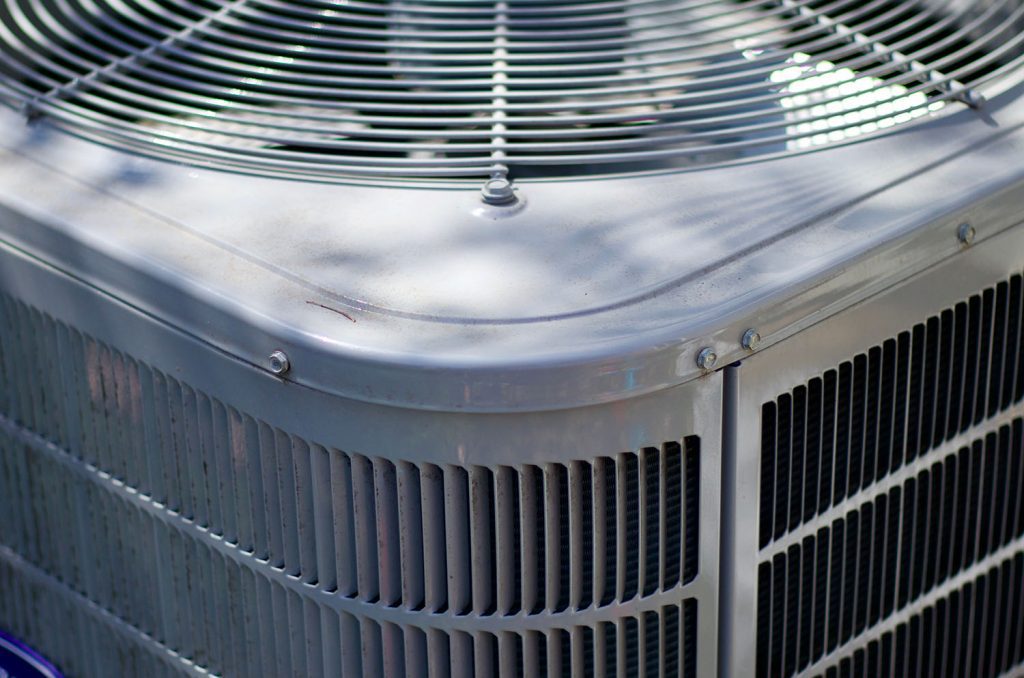

With advancements in technology, HVAC systems have become more efficient. However, common mistakes made during installation, maintenance, and operation can quickly negate these gains.
As the heating, air conditioning, and ventilation (HVAC) system is a significant investment and a major energy consumer in your home, it’s essential to ensure proper installation, maintenance, and control. Don’t let these mistakes reduce your HVAC system’s efficiency and shorten its lifespan, leading to added costs and reduced performance.
HVAC Mistake: Improperly Sized Air Conditioning Units
Choosing an air conditioning unit that is not appropriately sized for your home is a critical HVAC mistake to avoid, warns Eric Weiss, Technical Trainer for Trane Residential. An air conditioner that is too little for your home may struggle to keep up with demand, leading to extended run times and increased energy consumption, ultimately reducing its lifespan, explains Weiss.
On the other hand, if the unit is oversized, it will turn on and off frequently in short bursts, causing inadequate humidity control and ineffective air circulation within the home. Additionally, the constant on-off cycling will also put added stress on the HVAC system and cause premature wear and tear.
HVAC Mistake: Incorrect Air Filter Choice
Third-party air filters may seem like a good idea, but they can lead to one of the common HVAC mistakes: using overly restrictive filters. These filters can trap particles as small as 0.3 microns, including viruses. While air filters protect your blower, overly restrictive filters can harm your HVAC system.
Eric Weiss recommends discussing your needs with the installer before installation. If you want your HVAC system to also serve as a whole-house air filtration system, ensure the installer knows this beforehand.
These aggressive filters can impede airflow, reducing the efficiency of your HVAC system and shortening its lifespan. To prevent this, the installer can adjust the ductwork to ensure proper airflow, even with a restrictive filter.
HVAC Mistake: Improper Placement of Outdoor Coils
When installing an air-conditioning system, it’s crucial to ensure the outdoor coil unit remains at or near the ambient air temperature. However, attempts to blend the unit with landscaping can result in air recirculation around the coils, leading to higher operating temperatures.
As per Eric Weiss, this can result in a decrease in cooling capacity by up to 15% and a corresponding increase in energy consumption by up to 20%. To avoid these costly inefficiencies, properly place the outdoor coil unit in an open and unobstructed area.
HVAC Mistake: Refrigerant Additives
It is essential to be mindful when considering refrigerant additives in your HVAC system. The manufacturers carefully choose the oils and additives in their systems to optimize performance and reliability. Adding third-party additives can be risky and negatively impact the system’s performance.
According to Weiss, some third-party maintenance technicians may sell these additives to increase their profit margins. However, testing has shown that many of these additives result in negative outcomes, and some do not produce noticeable changes. It is best to avoid using these products and maintain the integrity of your HVAC system.
HVAC Mistake: Utilizing Cleaners on the Coils
Maintaining a clean HVAC system is a fundamental and effective method to maintain optimal performance. However, using cleaners that contain acidic or alkaline substances can be a common HVAC mistake. Weiss suggests effectively cleaning the coils using a low-pressure water stream. Before cleaning, it’s important to turn off the power to the unit, then direct the water from the garden hose towards the coils and cooling fins. For areas close to cottonwood trees, it may be necessary to open the top of the unit to wash away any accumulated fibers, but always remember to turn off the power before doing so.
HVAC Mistake: Installing A New Furnace With The Same Capacity As The Previous Model
When upgrading your furnace, it is crucial to consider the advancements in technology and changes in your home’s heating requirements. Installing a new furnace with the same capacity as the previous model may result in energy waste and disruptive noise levels.
To ensure optimal energy efficiency and quiet operation, it is recommended to reassess your home’s heating needs and choose a furnace that is appropriately sized. Downsizing the unit may bring additional benefits in energy efficiency and noise reduction.
HVAC Mistake: Operating the Blower Continuously in Humid Regions
In hot and dry climates like Phoenix, Arizona, continuous operation of the HVAC blower is recommended to ensure even distribution of cool air throughout the home, according to Weiss. However, in more humid regions such as Texas and the Midwest, Weiss suggests installing a variable-speed blower or programming it only to run when the compressor is in operation. This is because the continuous operation of the blower increases the relative humidity level within the home by 6-10%, leading to decreased comfort.
HVAC Mistake: Omitting a Return in a Room With a Door
Effective air circulation in a home is crucial for maintaining optimal temperature and air quality. An air return is a pathway to flow back to the furnace-A/C blower to be conditioned before being re-distributed to the rooms. However, installing a vent in a room without a proper air return can result in negative pressure within the home and compromise the HVAC system’s performance.
According to Weiss, a room with a vent without a return can experience positive pressure, which will cause the rest of the home to be in a negative pressure state. This can result in the pulling of air from outside, bypassing the HVAC system, and potentially trapping harmful gases from gas appliances.
For a well-functioning HVAC system, it is important to ensure that all rooms have sufficient airflow to a return and that the returns are adequately sized to support efficient air circulation back to the furnace and blower.
See also: The importance of maintenance.
Contact us to receive your quote and book your HVAC services today.
